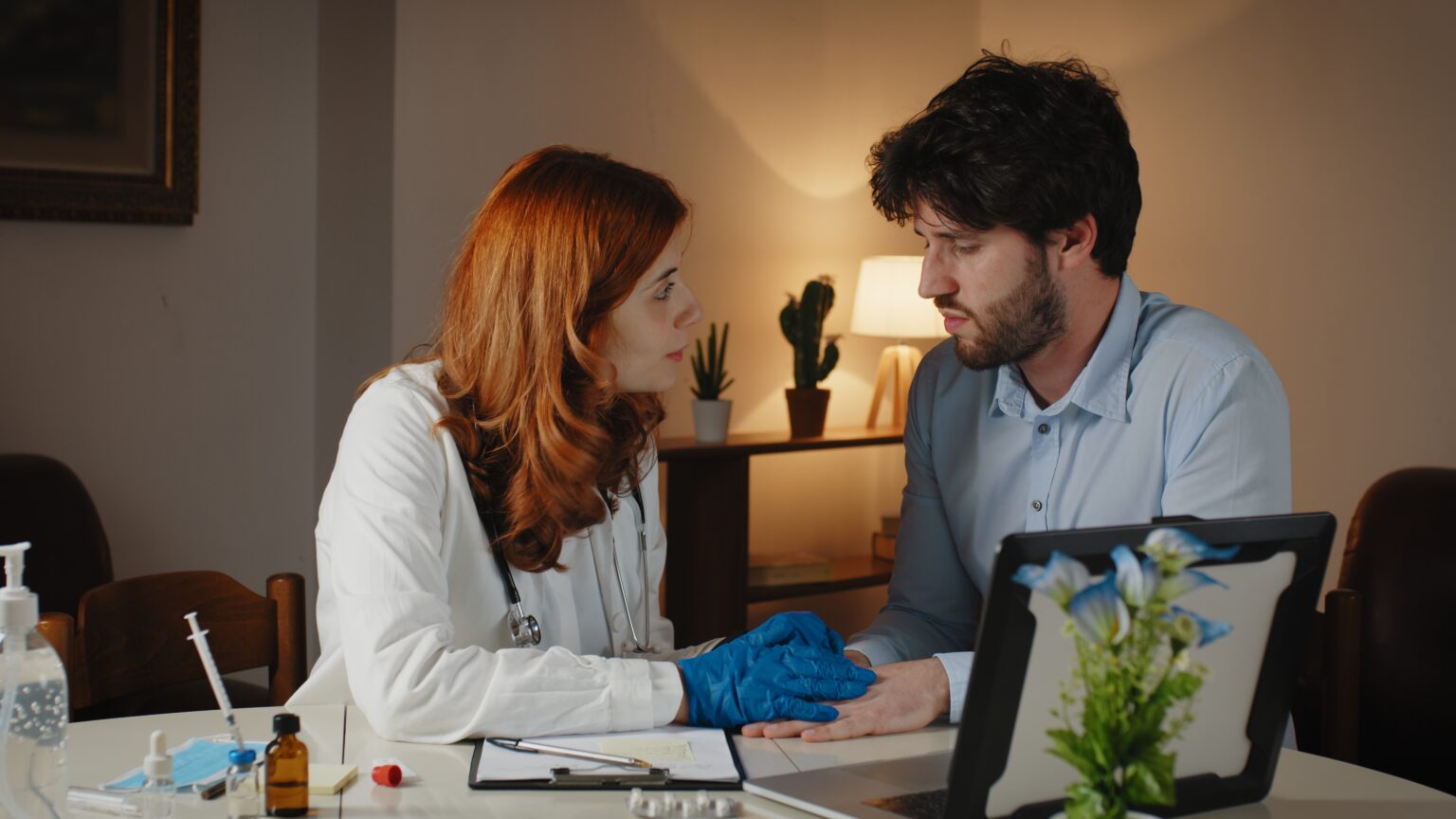
Chlamydia is considered the most sexually transmitted infection of today across all corners of the world. Caused by Chlamydia trachomatis bacteria, chlamydia has effects both in male and female groups. Yet so much suffering does chlamydia leave unchecked with undiagnosed untreated infection cases where this usually gives birth to numerous grave complications towards a human health status. For an individual wanting an in depth insight regarding Chlamydia infection we detail everything one will find relating to this.
What Causes Chlamydia?
What Causes Chlamydia?
Chlamydia is a bacterial pathogen caused by Chlamydia trachomatis. It is mainly spread through sexual contact, with vaginal, anal, or oral sex. However, it may be passed on at birth from mother to child and causes subsequent complications such as pneumonia or conjunctivitis in newborns.
Modes of Transmission
● Casual sexual intercourse – The acts of vaginal, anal, or oral intercourse without a condom increase the risk of transmission.
● Multiple sexual partners – The higher the number of sexual partners the greater the risk of exposure.
● Mother-to-child transmission – A pregnant woman who is infected will transfer the bacteria to her child at birth.
● Using dirty sex toys –Bacteria can be transmitted through the objects.
Chlamydia Symptoms

Many cases of chlamydia do not manifest with symptoms; screening is very essential. If there are symptoms, they tend to differ based on gender and affected body organs.
Common Female Symptoms
● Abnormal vaginal discharge – Yellowish or greenish mucus-like fluid.
● Painful urination – Pain or burning sensation when passing urine.
● Pain during intercourse – Pain or bleeding after sexual intercourse.
● Pelvic pain – Pain in the lower abdomen.
● Bleeding between periods – Spotting or abnormal menstrual cycles.
● Rectal discomfort – Abdominal pain or discharge if the rectum is infected.
Common Symptoms in Men
● Penile discharge – White, cloudy, or watery fluid flowing out of the penis.
● Burning pain while urinating – Pain or burning feeling while urinating.
● Testicular pain or swelling – Inflammation of the testicles
● Rectal symptoms – Pain, discharge, or bleeding from the anus
Newborn with Mother-to-Child Transmission Signs
● Eye infections (conjunctivitis) – Red, swollen, and watery eyes
● Respiratory pneumonia – Chest infection with constant coughing
Consequences of Unaddressed Chlamydia
Untreated chlamydia can contribute to serious health-related issues such as:
● Pelvic inflammatory disease (PID) – It is a pelvic inflammatory disease affecting the uterus, fallopian tubes, potentially leading to a loss of female fertility.
● Ectopic pregnancy – That is when one develops pregnancy beyond the uterine walls leading to loss or death. This can be painful.
● Chronic pain in the pelvis – Long term ache around the pelvic floor.
● Epididymitis – It is the irritation of the testicles of male people causing agony.
● Increases your chances of becoming HIV – and even other sexually transmitted infections.
● Reactive arthritis – A rare complication that results in joint pain, eye inflammation, and urinary problems.
How is Chlamydia Diagnosed?

Healthcare providers use several diagnostic tests to confirm chlamydia infection:
● Nucleic acid amplification test (NAAT) – The most accurate and commonly used test that detects bacterial DNA.
● Urine test – A sample of urine is analyzed for the presence of Chlamydia trachomatis.
● Swab test – A sample is taken from the cervix (for women), urethra (for men), or affected area (throat, rectum, eyes) and tested for bacteria.
● Screening recommendations – Sexually active individuals, especially those under 25 or with multiple partners, should undergo regular screening.
Treatment for Chlamydia
Chlamydia is curable with antibiotics. The most commonly prescribed medications include:
● Azithromycin – A single-dose antibiotic treatment.
● Doxycycline – A 7-day course of oral antibiotics.
● Alternative antibiotics – Erythromycin or levofloxacin may be prescribed for those with allergies.
Important Considerations During Treatment
● Avoid sexual activity – Refrain from sex until completing the antibiotic course and symptoms resolve.
● Partner treatment – All sexual partners should be tested and treated to prevent reinfection.
● Follow-up testing – A retest is recommended after three months to ensure the infection is cleared.
Preventing Chlamydia
Preventative measures can significantly reduce the risk of chlamydia infection:
● Use condoms correctly – Latex condoms offer the most effective protection.
● Begin regular check-ups – Routine STI tests for sexually active people.
● Reduce the number of sex partners – The fewer the number of partners, the lower the chance of exposure.
● Avoid sharing sex toys – Clean them properly and use protection when using them.
● Educate yourself and others – Knowledge about STI risks facilitates proper conduct.
Chlamydia and Pregnancy

Pregnant women infected with chlamydia are likely to face problems, including:
● Preterm birth – They are more likely to deliver prematurely.
● Low birth weight – The babies can have health problems.
● Neonatal infections – Possibility of developing pneumonia or eye infections.
Regular prenatal check-ups are vital for the mother and the baby’s health.
Chlamydia Testing and Treatment at Avant Medical Group
For accurate testing, professional diagnosis, and thorough treatment, see Avant Medical Group. Their staff of dedicated healthcare providers conducts confidential screenings and develops tailored treatment plans to help patients achieve maximum health benefits.
Conclusion
Chlamydia is an STI which is prevalent, yet it can be prevented and treated. Its early diagnosis and treatment help in preventing more dangerous complications like infertility, PID, and vulnerability to other infections. Regular screening and safe sexual practice along with medical intervention within a short time helps prevent the spreading of chlamydia infection and preserves one’s overall sexual health. Consult trusted medical professionals like Avant Medical Group in case you have an infection or need to be screened for an STI.
